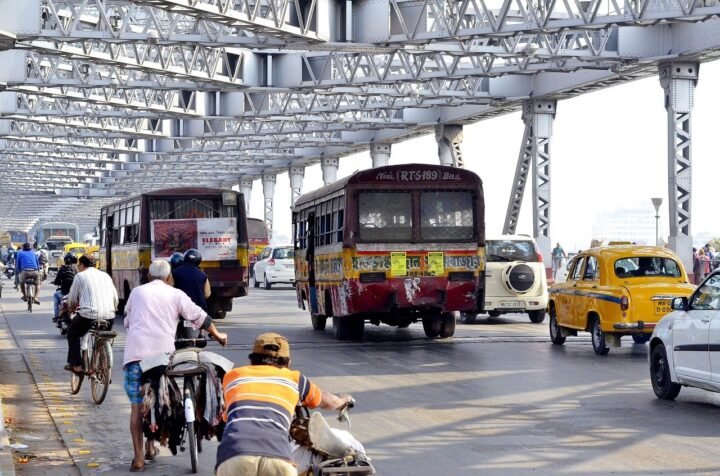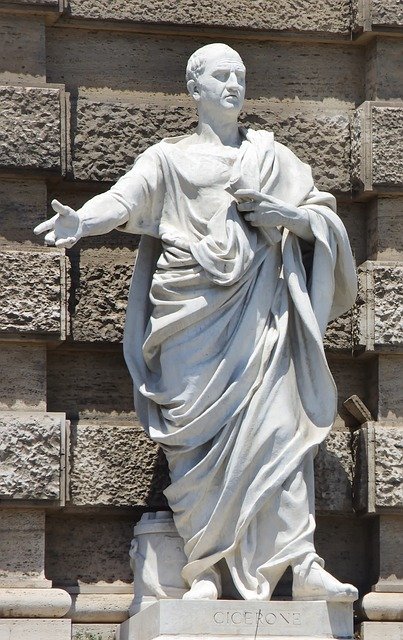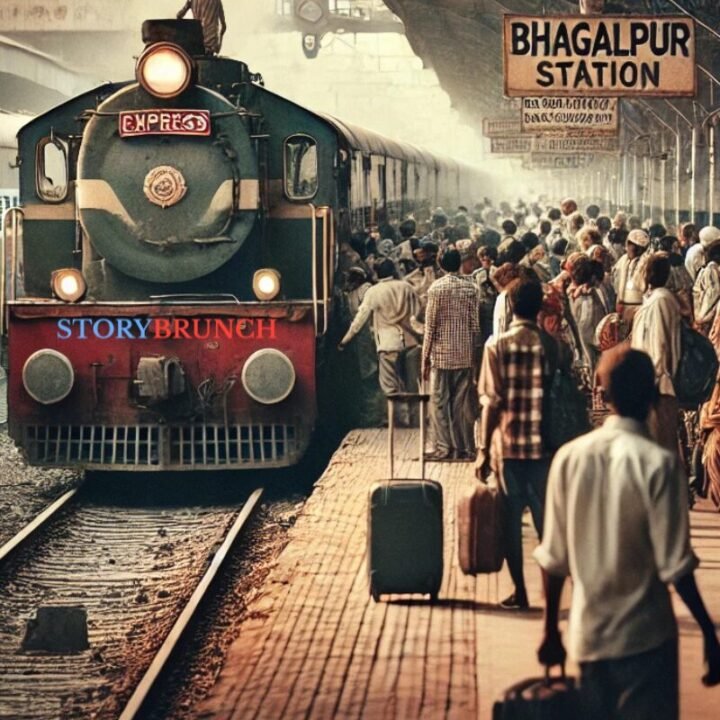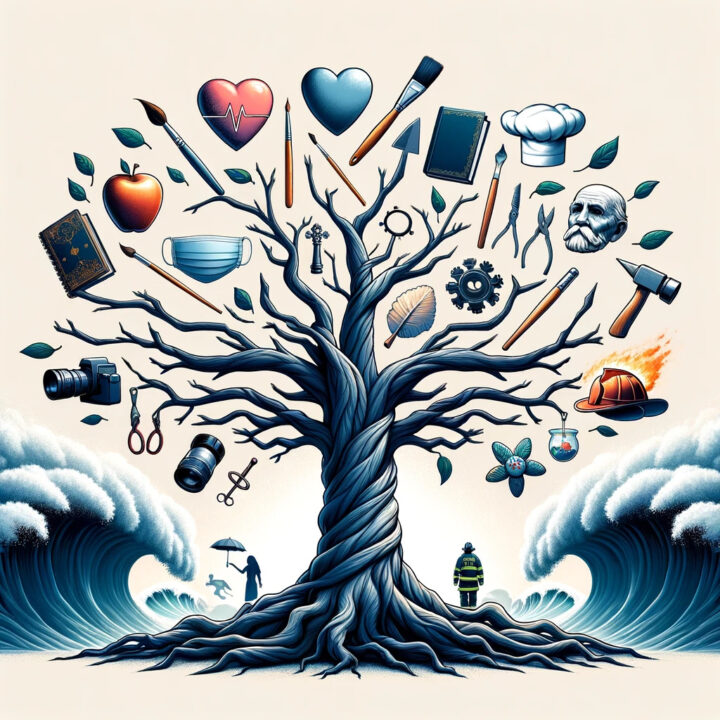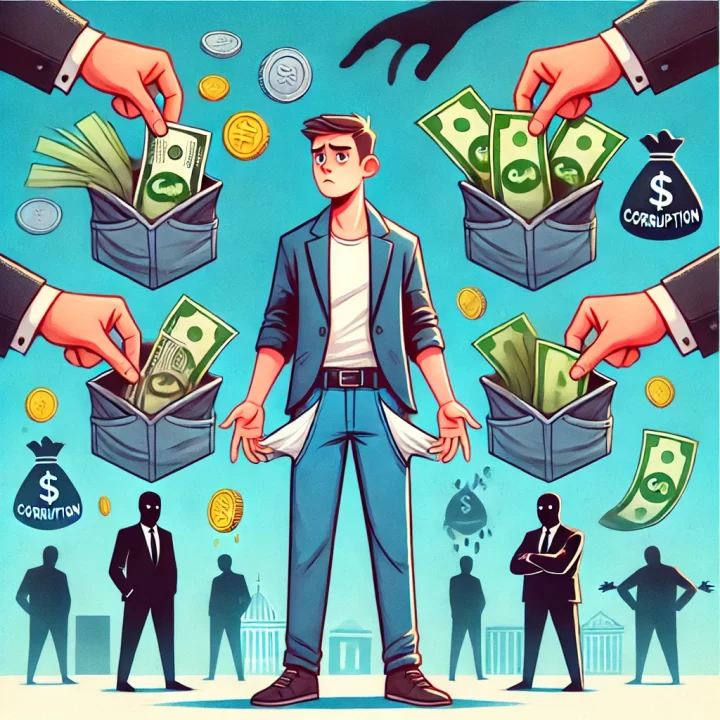A convo between a Nobel Laureate and a Taxi driver of Kolkata
Sachin Ghosh was waiting at the exit at Dum Dum airport, for that day’s client who was a high profile dignitary visiting Kolkata after a decade, as told to him by his cab agency manager. After an hour of wait, the flight from New York landed, and Sachin’s client for the day, a Nobel Laureate from West Bengal appeared out of the VIP exit, surrounded by media personnel vying for space to capture him in frames. There were some prominent men of the city waiting to garland him. The rush ended after half an hour and the laureate, Mr Artha Sen seated himself in Sachin’s cab.
They were heading to the Taj Hotel on Belvedere road, Alipore. While the cab was passing through a subway, Artha Sen rolled down the window pane and said-
‘There is something unique about our Bengali culture which pulled me back to Kolkata after a decade.’
The driver looked at the laureate in his rearview mirror. He was staring at an old warehouse campus. The driver said-
‘That old building was my factory, I used to work there on the conveyors. It shut down a few years ago, now I drive this taxi.’
The Laureate remarked- ‘Symbols of capitalism! Now you are free, you work for yourself, you drive your taxi’,
Sachin- ‘Its not my car Sir,I drive it on rent,hired by the cab agency.After the factory shut I was left jobless for years.Loans were piling up and I had to pay fees of my children,so took up this job,the job on conveyor belt was not interesting but it paid me well.’
While the car was taking a turn near the Howrah junction, Mr Arth Sen asked him to slow the car. He removed his spectacles and started looking at an old dilapidated 5 storey building at the curve.
He murmured- ‘The beauty of Kolkata, the mix of the old and the new. This rawness can only be felt in the streets of Kolakat,no where else’.
Amused, Sachin inspected the old building with wide eyes for the first time. He used to pass daily across the turn but could never find anything striking about the old building.
Striving hard to find any semblance to beauty, Sachin said- ’10 people died in this building last year due to an earthquake,locals had complained to municipality about its condition but no one bothered,now its lying vacant,it can topple anytime taking lives of adjoining residents,they all live in constant worry,even Anirban ,my colleague at the cab agency lives here only.’
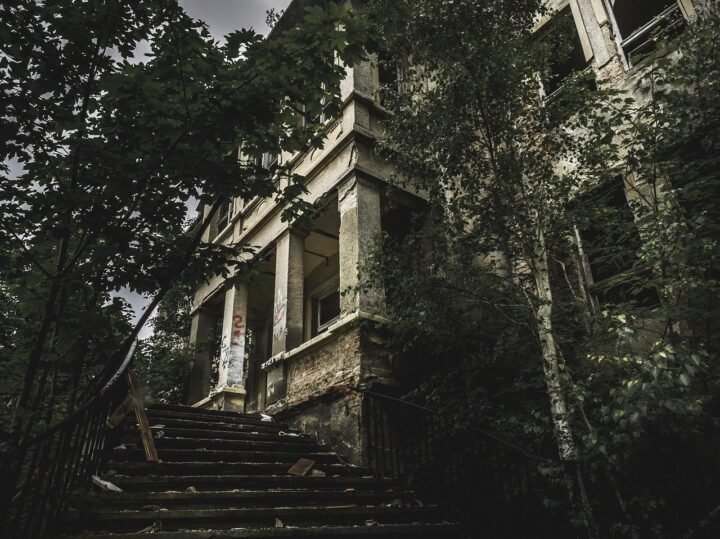
The car kept moving, the laureate was looking outside with curious eyes, as if trying to find out lost memories associated with the city.
All of a sudden he patted Sachin’s back and asked- ‘What’s the political sentiment here? Who is winning the elections, which party are you voting for? Regional Bengali party or the one with saffron flags?’
Sachin could sense Arth’s eagerness. After a thoughtful silence, he said- ‘People are in 2 minds as of now, but it appears the state will go for Poribortan this time. Things are not moving ahead in the city, party goons and radical elements seem to have hijacked the whole state.’
Dismayed by his reply, Arth quipped- ‘Poribortan at the cost of Bengali identity? Are people ready to trade our rich Bengali legacy just to try a change?’
Sachin could sense Artha Sen’s infuriation. Not to displease him, he replied- ‘People are still undecided, it can go both ways, a dilemma for us. The city demography has changed drastically in recent times and our culture is under a continuous onslaught. Probably a poribortan can stop this erosion.’
Artha, vexed by his reply maintained serious silence.
At the Bhagbanpur turn, he asked Sachin all of a sudden to turn to the right. Artha wanted to visit his college friend whose father owned the Agrawal Silk Store in that area. He got the car stopped at an untidy crowded market and got down. There was no Agrawal Silk store where it used to be. Instead, few bike repair shops had come up in its place. He enquired one of the boys at the workshop about the Agrawal Silk store. None knew about it. Artha spotted the old Banerjee stationery shop across the street and hastened towards it. Sachin accompanied him too. An old bespectacled man was arranging some notebooks, standing on a scaffolding. Artha asked him about the silk store.
The old man, adjusting his spectacles to get a good glimpse of Artha, replied- ‘Agrawals? They left the city a decade ago. They moved to Bengaluru where they run their business now. Their shop was ransacked during an anti-marwari agitation by left parties. Now the place is occupied by Bangladeshis who run bike repair shops.’
He continued- ‘They have illegally occupied the whole building with the help of the local ward councilor. I miss the days when I would chat for hours with Manik Agrawal after we both would shut down our shops. But who are you?’
Mr. Artha replied- ‘Just an old acquaintance of Mr. Agrawal’.
Artha Sen stood quiet for some time staring at the building which housed the silk store. Then he moved to the cab. Sachin followed.
The car started moving towards Alipore. Artha was silent.
Sachin said- ‘It’s the same story almost everywhere, many Bangladeshis have occupied places across the city illegally, many slums have cropped up in the city, and most of them indulge in crimes, from petty thefts to rapes and murders. Since most of them are uneducated they cannot even get gainful employment, some do not want to work, and they have smuggling networks across the borders. It’s easy money for them, while residents suffer, especially those who cannot afford society gates.’
Infuriated Artha told Sachin- ‘You cannot blame all migrants because of acts of few. Bengali culture is about embracing humanity, after all, they are also Bengalis from across the border. You are shifting the responsibility of the government to those distressed migrants’.
Sachin was annoyed at Artha’s reply but felt it was better to keep quiet and keep driving.
After 15 minutes the Taj hotel arrived and Artha Sen was received by the top management of the hotel, he walked away to the royal interiors of the reception gallery flanked by prominent people of Kolkata with bouquets in their hands. Sachin could see him disappearing in the gallery walking over the long red carpet.
The color of communism was shining brighter in a capitalist tower.
Sachin realized that the red of communism on the carpet was only a path to the different hues of the capitalist world, in which Artha Sen disappeared.
A week later, Sachin Ghosh was called again, to drop Artha Sen at the airport. He was returning to New York, where he lived with his family in a high rise of Manhattan. Sachin received him at the Taj reception center. They reached the airport in an hour.
Artha got down of the cab and reached into his breast pocket for his wallet, took out a note of Rs 2000, and gave it to Sachin, for his service.
Artha bid him goodbye- ‘Thank you. I will miss this beauty called Kolkata. You folks too do not forget to preserve the essence of Bengal, vote for a regional party’.
Sachin, this time unapologetically, asked Artha-
‘Yes, we will preserve the essence, for you to come and feel it once in a decade, to find beauty in our poverty, to look for symbols of oppression in shut down factories, to mock unemployed as free people, while we keep surviving the ills which have crept in the name of preserving the identity, surviving simply because we gave birth to our kids, in the persistent hope of a Poribortan which would change our lives, disappointed every time.
But why don’t you leave New York and settle in this beautiful mix of old and new called Kolkata, among your people, in your country? Why do you need to miss Kolkata, why don’t you help preserve this identity by being part of it?’
Artha adjusted his spectacles and moved hurriedly towards the VIP lounge at the airport, without replying.He did not have a reply. But Sachin Ghosh had got the answer.

